Japanese automaker Nissan plans to introduce 30 new vehicles, including seven in the U.S. and Canada as it seeks to bridge the gap between its current organizational plans. It’s dubbed the new plan, The Arc.

Nissan CEO Makoto Uchida laid out the company’s transitional plan to its long-term goal, which it’s dubbed, The Arc.
The company just completed its Nissan NEXT business transformation plan is shifting toward is long-term vision, Nissan Ambition 2030. This transitional period will be divided into two 3-year segments designed to bolster what’s just been completed, implement new strategies and then carry those out.
In real terms, it means seven new vehicles in the U.S. and Canada, revamping 78% of its passenger car lineup, plus launching e-power and plug-in hybrid models.
“The Arc plan shows our path to the future. It illustrates our continuous progression and ability to navigate changing market conditions,” said Nissan President and Chief Executive Officer Makoto Uchida in a statement.
“This plan will enable us to go further and faster in driving value and competitiveness. Faced with extreme market volatility, Nissan is taking decisive actions guided by the new plan to ensure sustainable growth and profitability.
Balanced portfolio
Unsurprisingly, Nissan’s prepared to introduce 30 new vehicles by 2026 with about half, 16, being electrified. The remaining 14 will be internal combustion-powered models where “the pace of electrification differs.”
Nissan plans to launch a total of 34 electrified models from fiscal year 2024 and 2030 to cover all segments, with the model mix of electrified vehicles expected to account for 40% globally by fiscal year 2026 and rise to 60% by the end of the decade.
Nissan looks to increase annual sales by 1 million units — 330,000 of those from the Americas — and its operating profit margin to more than 6%, both by the end of fiscal year 2026. This will pave the way for the second part of the plan, officials claim, aimed to enable the EV transition and realize long-term profitable growth, supported by smart partnerships, enhanced EV competitiveness, differentiated innovations and new revenue streams.
By fiscal year 2030, Nissan sees a revenue potential of 2.5 trillion yen from new business opportunities.
More Nissan news
- Nissan, Honda Exploring Partnership on EV Component, Software Development
- A Week With: 2024 Nissan Pathfinder Sports Improved Looks, Same Performance
- 2024 Nissan Rogue — Automaker’s Bestseller Gets a Google Update
To be EV or less EV …
Like virtually every other legacy automaker on the planet, Nissan’s rethinking its electrification plans. And like the others, it plans to be electric enough. Electric enough to sell EVs to EV fans. Electric enough to meet fuel economy and emissions targets. Electric enough secure economies of scale to help with profitability.
The product offensive will be supported by new development and manufacturing approaches aimed to make EVs more affordable and increase profitability. By developing EVs in families, integrating powertrains, utilizing next-generation modular manufacturing, group sourcing, and battery innovations, Nissan aims to reduce the cost of next-generation EVs by 30% (when compared to the current model Ariya crossover) and achieve cost-parity between EVs and ICE models by fiscal year 2030.
In the area of family development alone, the cost of subsequent vehicles — those developed based on the main vehicle in the family — can be reduced by 50%, the variation of trim parts reduced by 70% and development lead time shortened by four months. By adopting modular manufacturing, the vehicle production line will be shortened, reducing the production time per vehicle by 20%.
Under the Arc plan, more plants in Japan and overseas will adopt the Nissan Intelligent Factory. concept, with the Oppama and Nissan Motor Kyushu plants in Japan, the Sunderland Plant in the UK and Canton and Smyrna plants in the U.S. starting the adoption from fiscal year 2026 through 2030. Meanwhile the EV36Zero. production approach will be extended from Sunderland in the UK to plants including Canton, Decherd and Smyrna in the U.S., and Tochigi and Kyushu in Japan from fiscal year 2025 through 2028.
Products and partners
The automaker also plans to roll out eight new-energy vehicles in the Chinese market, four of which will be Nissan brand models, and six new models in Europe.
It is also aiming to launch by the end of its financial year to March 2029 a new electric 3-row SUV that will come with a 50% reduction in quick charging time and 50% higher energy density compared to the Ariya model.
Nissan will explore new partnerships in the U.S. and Japan and continue to leverage its long-standing alliance with Renault, and Mitsubishi Motors in Europe and other regions such as India and Latin America, it said.

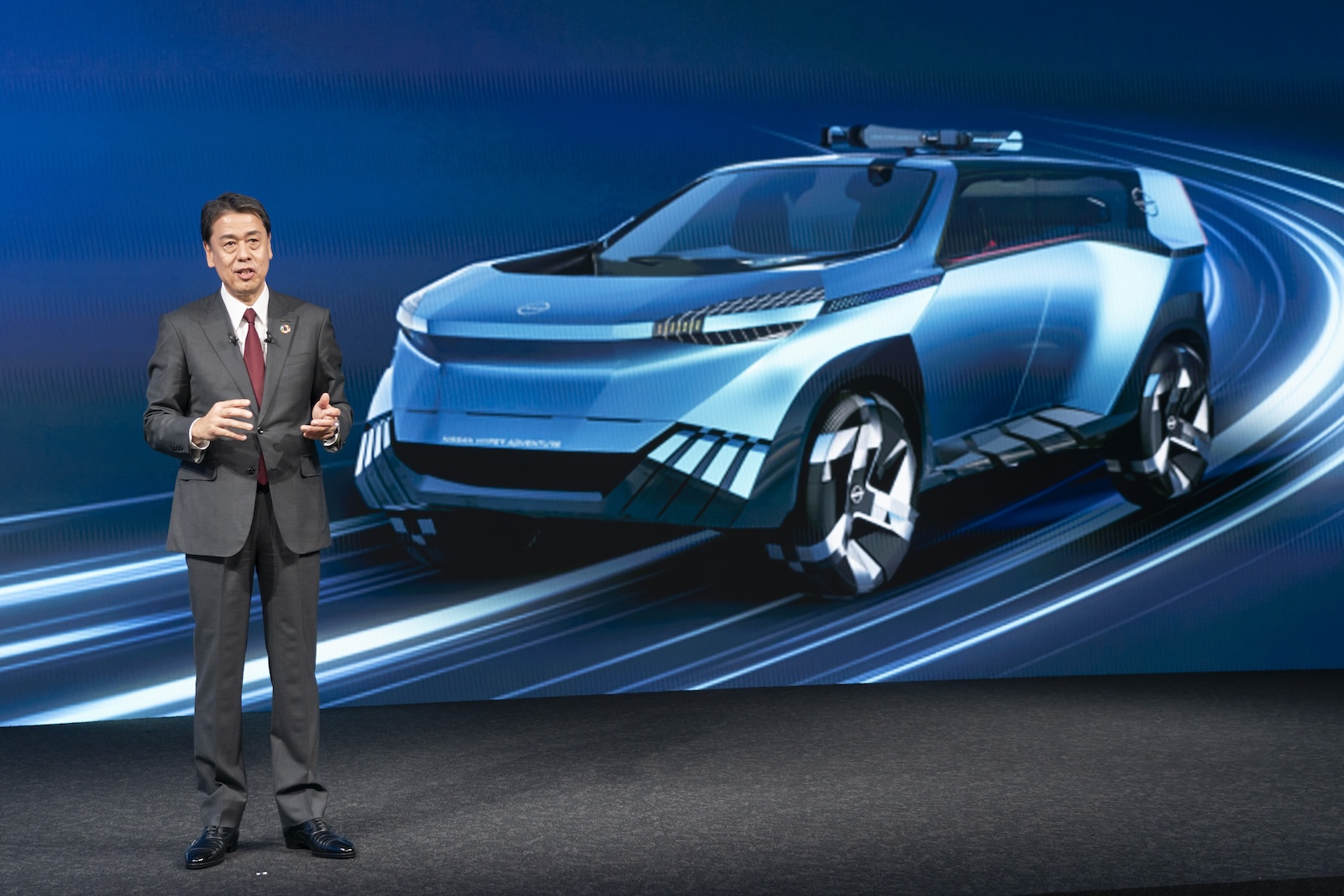
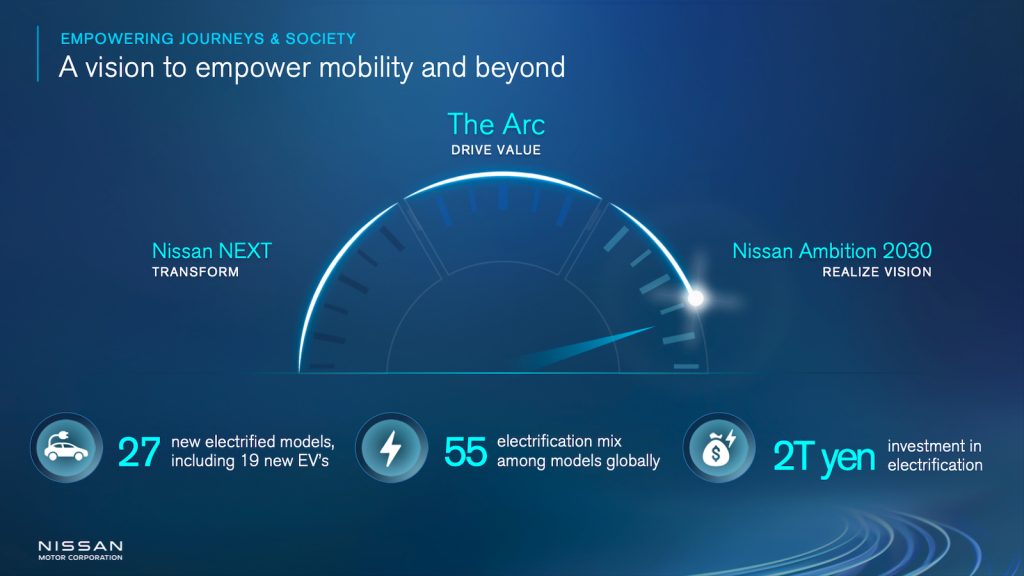
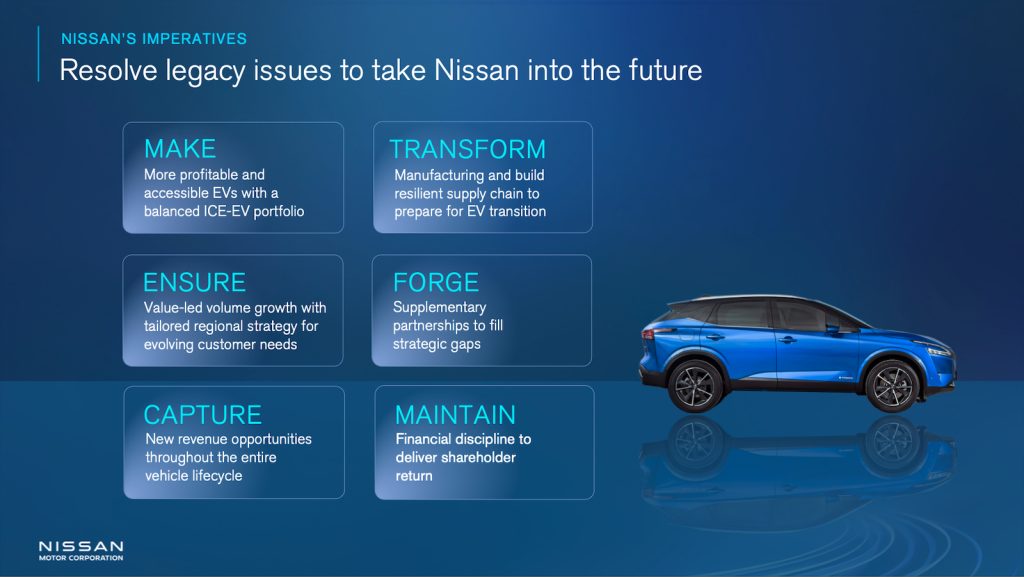
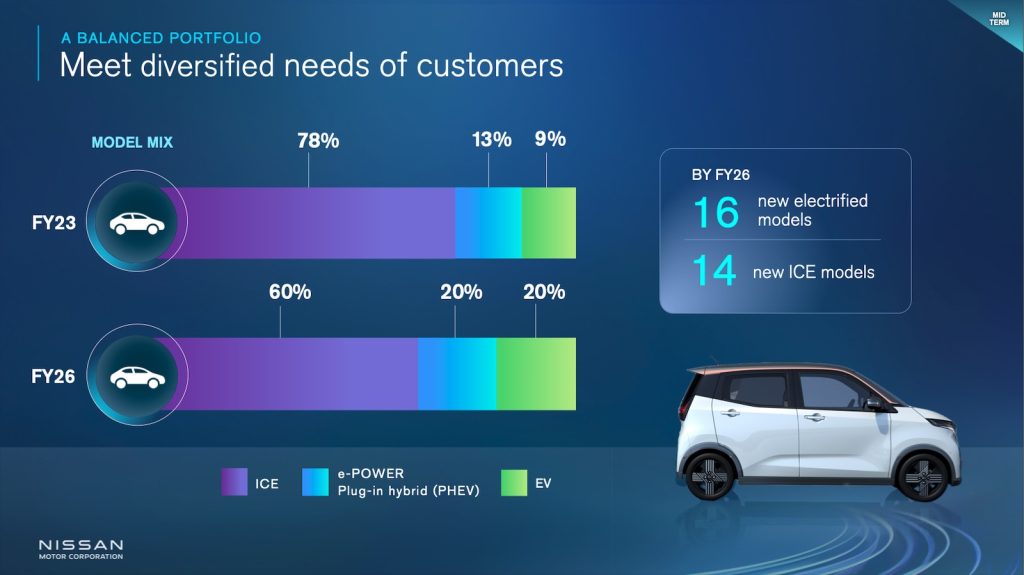

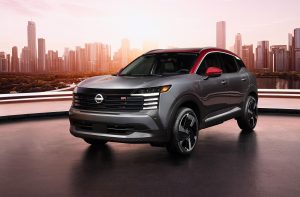


0 Comments